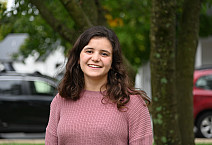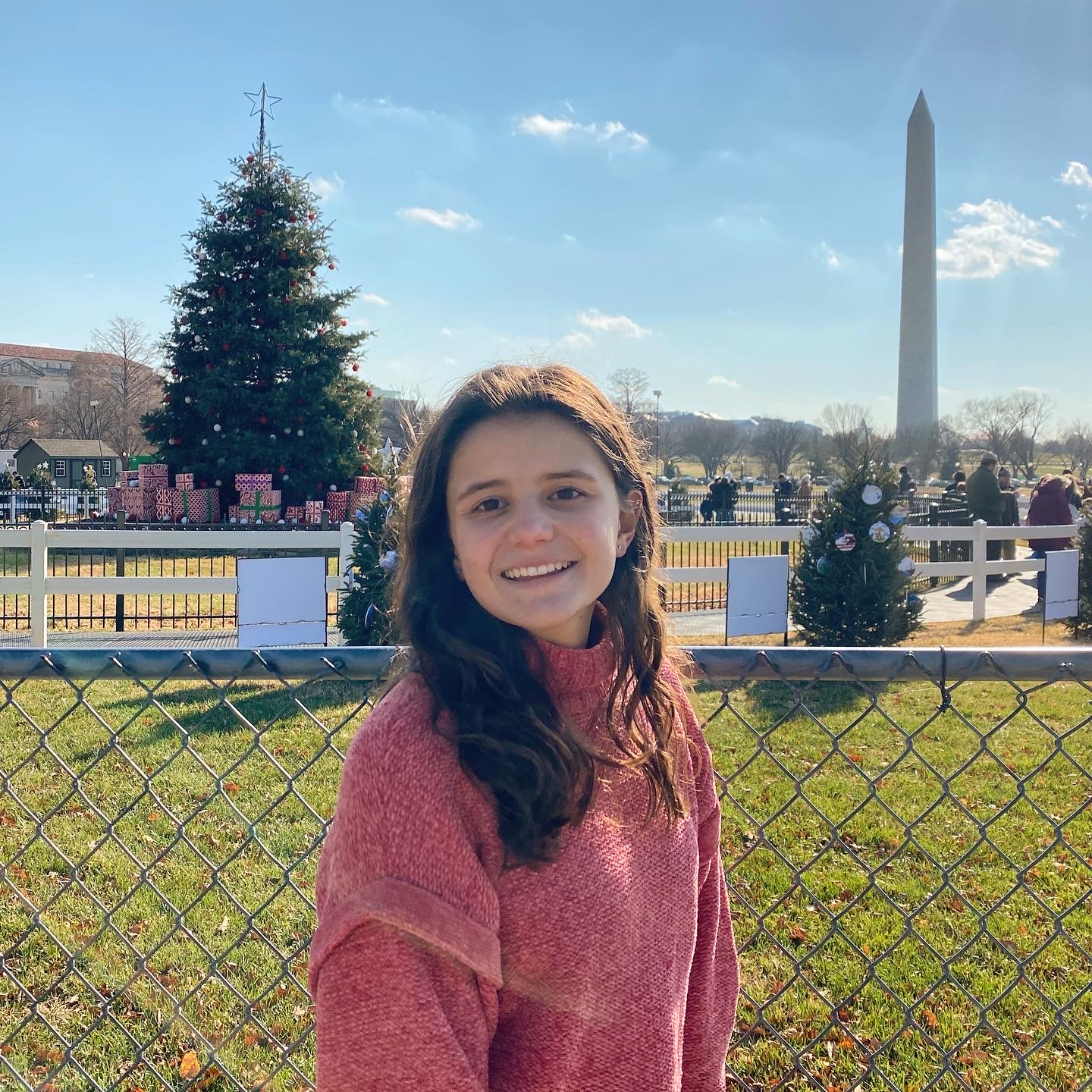Paige Bristow ’23
The Research
My research uses “click chemistry” to conjugate an azide-modified Janus Dendrimer to an alkyne-modified DNA strand to form capsule-like dendrimersomes. Characterization such as agarose gel electrophoresis, reversed-phase high performance liquid chromatography, dynamic light scattering, and fluorescence resonance energy transfer confirmed successful conjugation and dendrimersome formation. Currently, I am working to measure stability and viability of these dendrimersomes in biological conditions for applications in drug delivery. Future studies will be extended into application of these conjugated dendrimers in the encapsulation of drug-like molecules and programmed drug delivery.
The Impact
Among the current selection of modern drugs, most are hydrophobic (repelled by water) causing insolubility in the aqueous bloodstream. To improve solubility, capsules similar to a cell’s lipid bilayer can be formed to carry the hydrophobic cargo to targeted tissues. These vesicles can then fuse with the cell membrane to deliver the drug cargo, thus improving delivery of poorly soluble drugs. Janus dendrimers (JDs) are branched two-sided polymers which have displayed great potential for the formation of drug delivery vehicles due to their hydrophilic (water compatible) head groups and their four hydrocarbon chains which comprise the hydrophobic tail. Furthermore, we hypothesize that these JDs can be attached to nucleic acids to support capsule formation and stabilization. Our research aims to make an impact in drug delivery by using these capsules to target specific tissues as the current drugs used cycle through the entire body, even to tissues which do not need the treatment sometimes causing unwanted side effects.
The Takeaway
Research with Dr. [Samantha] Wilner has sparked a personal interest in translational medicine, which I did not have before Ursinus. After this research experience, I no longer want to be just a doctor, but rather someone who can work to bridge the 17-year gap between the astounding scientific findings in laboratories and the work being done in clinical practice. Lastly, research has brought me invaluable mentorship, vast learning experiences, and a multitude of friends just as passionate about science as I am.




